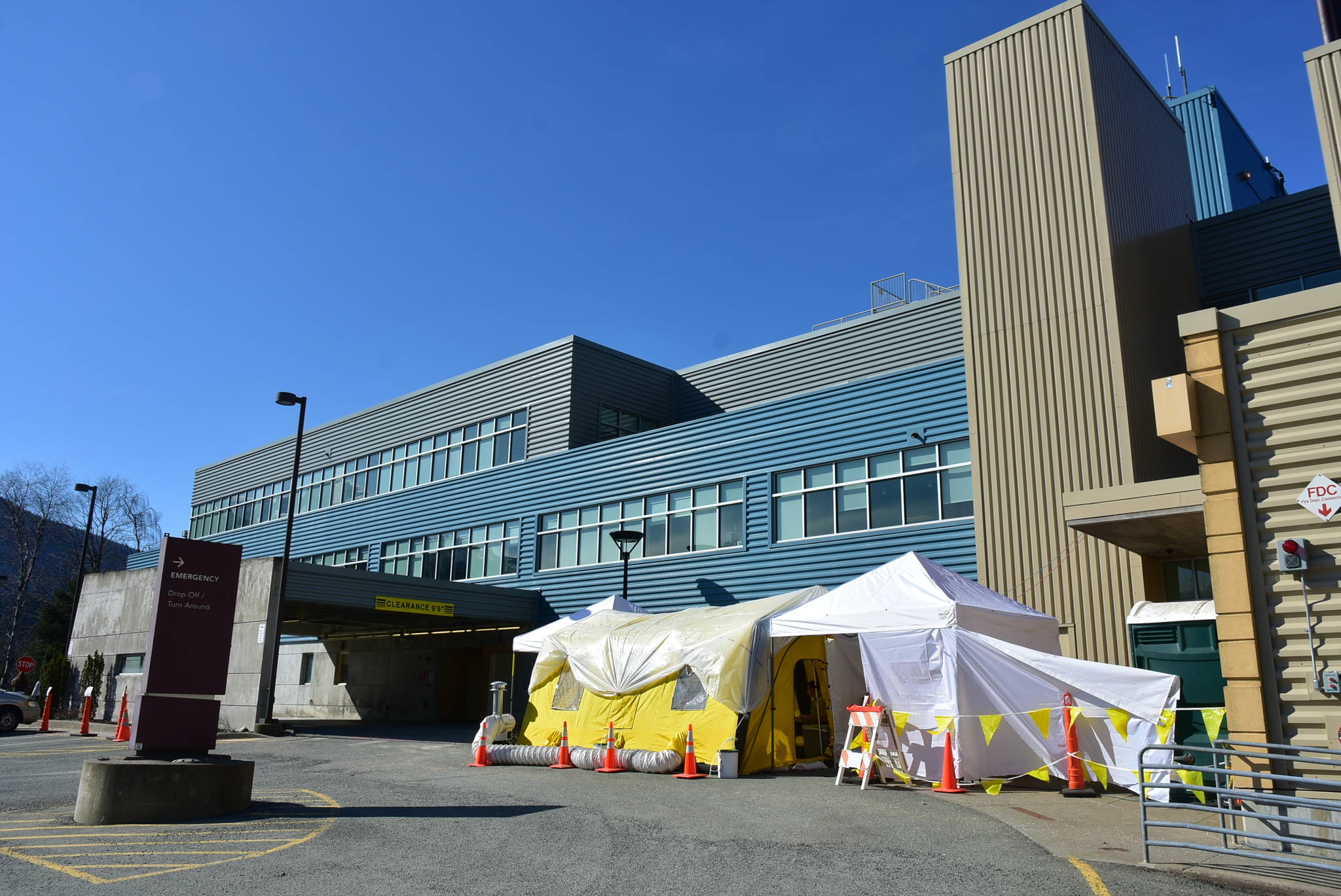An earlier version of this article incorrectly stated Bartlett Regional Hospital performs roughly 200 procedures per day. The correct number is 200 per month. Hospital staff contacted the Empire to clarify that CFO Kevin Benson had made an error in his email. The article has been updated to reflect this change.
The state is working to roll back some of the health mandates issued in response to the COVID-19 pandemic and prompt economic activity.
The plan is to proceed cautiously, according to Gov. Mike Dunleavy, who at a press conference Wednesday announced health care facilities would soon be allowed to perform non-urgent procedures.
Under typical circumstances, Bartlett Regional Hospital averages about 200 procedures a month according to hospital CFO Kevin Benson, but because it’s a statistic that not routinely tracked, he wasn’t able to say how many of those procedures were “elective.”
In its mandate, the state describes elective or non-urgent procedures as ones that can be delayed without significant health risks to the patient. The state is lifting its mandate in phases, with the first part going into effect April 20. Health care providers will be able to resume services that require minimal protective equipment and follow certain guidelines, according to the text of the mandate.
On May 4, procedures that cannot be delayed beyond eight weeks will be allowed to resume, but social distancing and other preventative measures will remain.
When he issued the original mandate prohibiting elective procedures, Dunleavy said it was to preserve and increase the state’s stockpile of personal protective equipment, or PPE, such as latex gloves and face masks.
For hospitals, elective procedures are a large source of revenue.
“It is estimated the hospital is currently losing $4 million per month under the current scenario without performing elective procedures,” Benson wrote in an email. “While opening that mandate will reduce this loss, it will not eliminate monthly losses.”
BRH was having a good year financially, Benson said, but to get the hospital back to a profitable position, more services such as the radiology lab would need to be opened.
Hospital staff is still discussing the best ways to accommodate patients, families and staff as BRH resumes somewhat normal business, according to Benson.
[State is stocking up on supplies, preparing for spike in cases]
“Changes are being discussed and have yet to be determined,” Benson said.
Dunleavy previously said the state needed to prepare for a sudden spike in cases. But Alaskans were doing a “pretty good job” at social distancing, Dunleavy said at a press conference in Anchorage Wednesday, and it was time to start opening certain sectors of the economy.
If a spike does come, one of the issues hospitals will face is not just the availability of PEE, but of staff. Reopening other parts of the hospital means assigning staff, and that could leave workers dealing with a spike in COVID-19 cases shorthanded.
“The surgery nursing staff is dedicated to that department due to the level of training required for surgery service,” Benson wrote. “However, the surgery nursing staff can supplement the nursing team taking care of COVID-19 patients and may be needed in that capacity.”
However the state’s mandate does allow for local communities to make decisions about their own capacity, said Bartlett CEO Chuck Bill.
The mandate according to Bill “specifies that each community must make the decision on how to prioritize based on local capacity for testing and available PPE, both of which are limited in Juneau at this time,” Bill wrote in an email. “This is a developing situation which will change and evolve rapidly.”
• Contact reporter Peter Segall at psegall@juneauempire.com. Follow him on Twitter at @SegallJnoEmpire.

